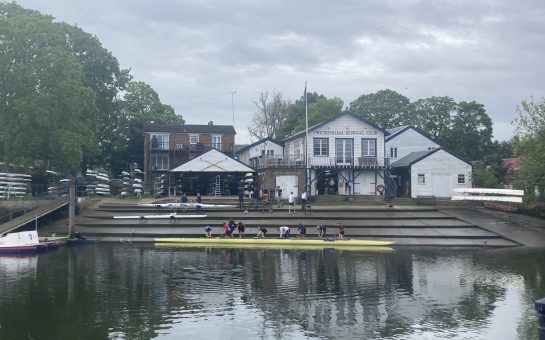A military veteran is angered by Richmond Golf Club following their response to a complaint about unsuitable disabled access.

A military veteran is upset with Richmond Golf Club after the club mocked him for his complaint over unsuitable disabled access.
Mark Cuthbert-Brown, 54, who fought in the Balkans, Rwanda and Iraq, was told that he could not invite a friend into the club, fellow veteran David Loftus.
A manager said the 300-year-old building had no lifts or ramps for disabled access and the clubhouse’s status as a Grade-A listed Heritage prevented it from making changes to the building.
So he offered extra staff to help Mr Loftus up the stairs, but the Col Cuthbert-Brown was outraged at the perceived inadequate support, and reported the club to the council on alleged breach of equality laws.
On learning of this complaint the club’s general manager, John Maguire, recently sent an email to Col Cuthbert-Brown, claiming the man now in charge of the Royal Military School of Music should, ‘stick to playing the triangle, it’s more suited to (his) personality’.
He also thanked him for the complaint and said it proved his suspicion of ‘just how sad a character (he) must actually be’.
He explained the club had done nothing wrong and stated that he hoped Col Cuthbert-Brown’s ‘little’ organisation was fully compliant with all current Health and Safety Fire regulations as anyone could play petty games.
When questioned on the email Mr Maguire claimed the issue had nothing to do with disabled access at the club and was instead about Col Cuthbert-Brown, supposedly ‘buttered up all his life’, not taking a joke.
However, the Centre for Accessible Environments – a registered charity promoting and implementing inclusive design and access for disabled and older people – state the club’s management could be mistaken in stating they have done nothing wrong.
They said the club’s position has no legal grounding given legislation on disability which came into force in 1995.
The 1995 Disability Discrimination Act made it unlawful to discriminate against people in respect of their disabilities.
Brenda Puech, 48, Access Consultant at the charity, said service providers had until 2004 at latest to make necessary physical adjustments for disabled access, meaning Richmond Golf Club, depending on when it was established, had years of advance notice.
When deciding whether it is reasonable to make an adjustment, t+he law would take into account cost and practicality of the adjustment and also resources of the business.
The courts would need to decide if these factors applied to the club; which is a private members club with high membership fees.
She added that English Heritage and the Heritage Lottery Fund, are very forward thinking in this respect, often insisting on improved disabled access as a condition for a grant.
“It is very sad and disappointing that an organisation has this attitude and such a lack of facilities,” she said.
Putting aside the difficulties of long-term planning, the club could have arranged a short-term option such as a stair climber, which can be easily bought or hired.
“Lifting someone up stairs is undignified and impractical,” Ms Puech said.
Richmond Golf Club were not available for comment.




